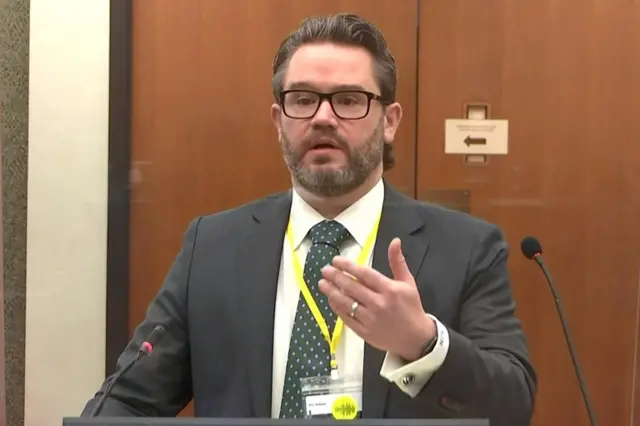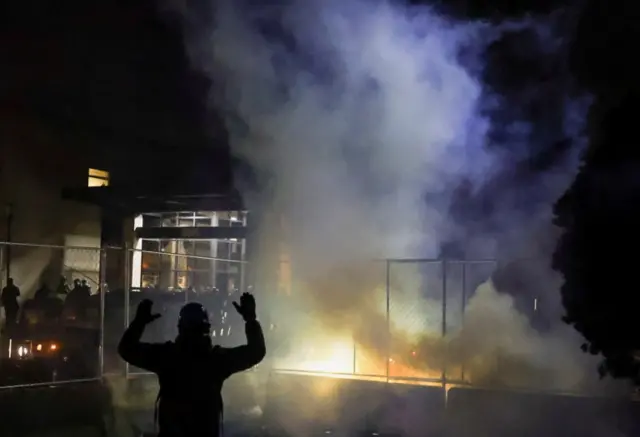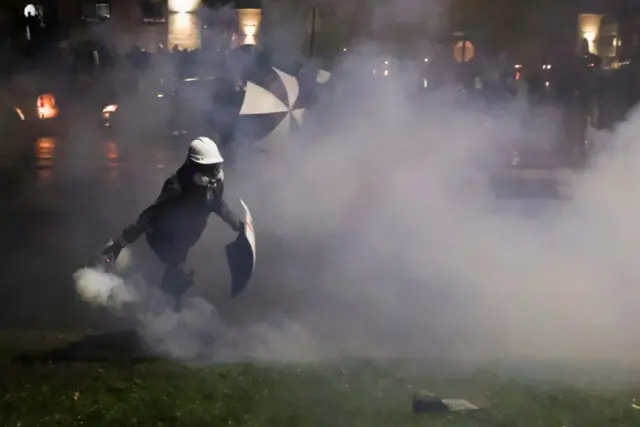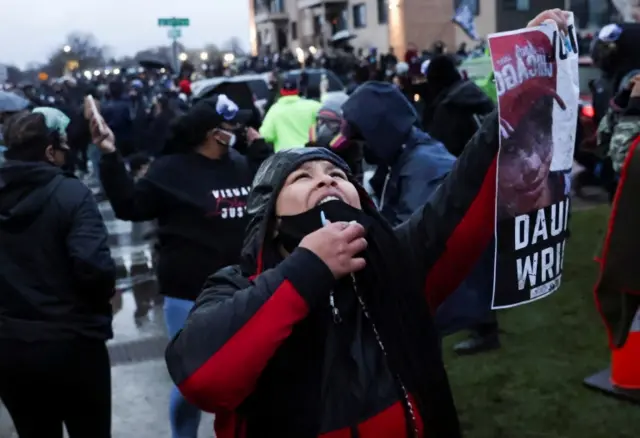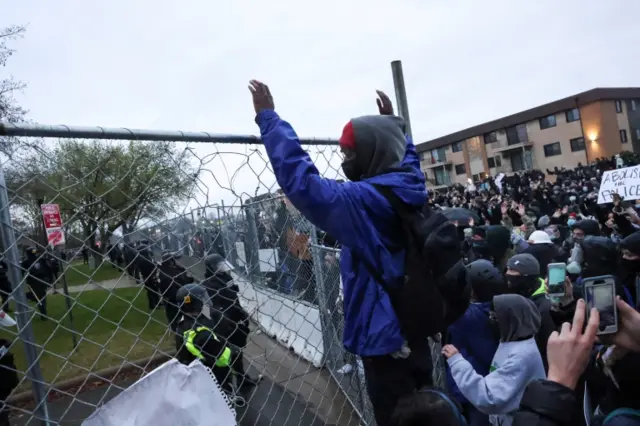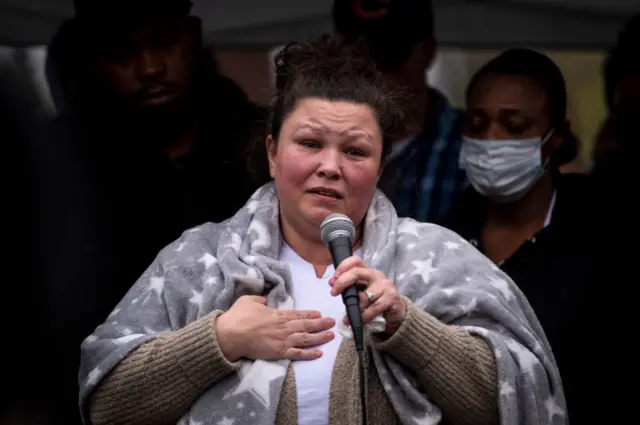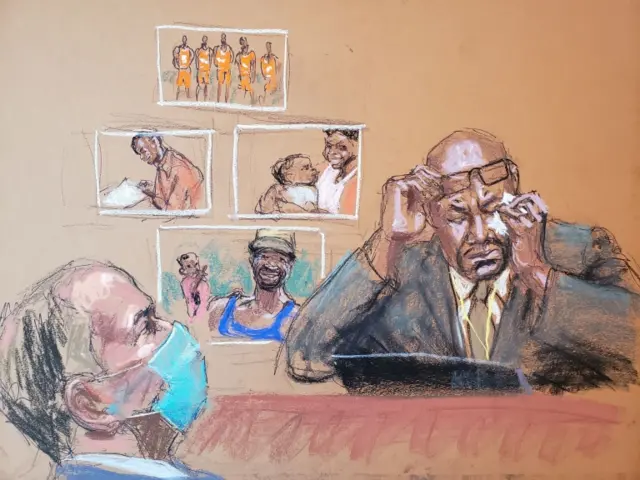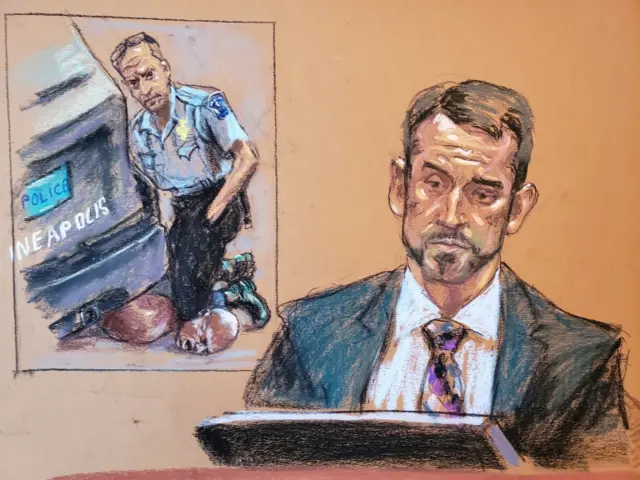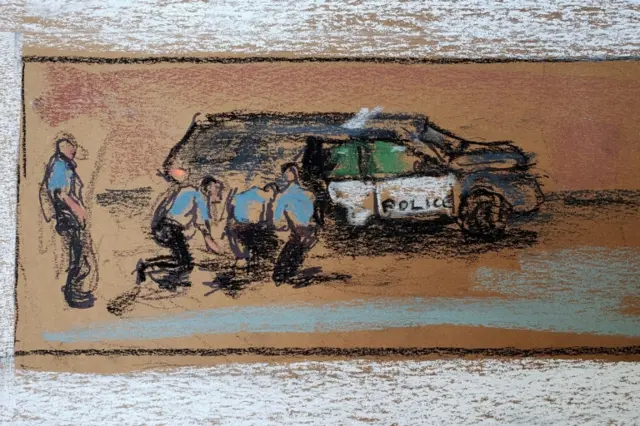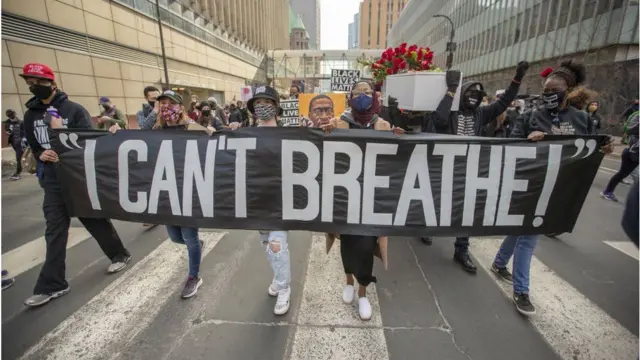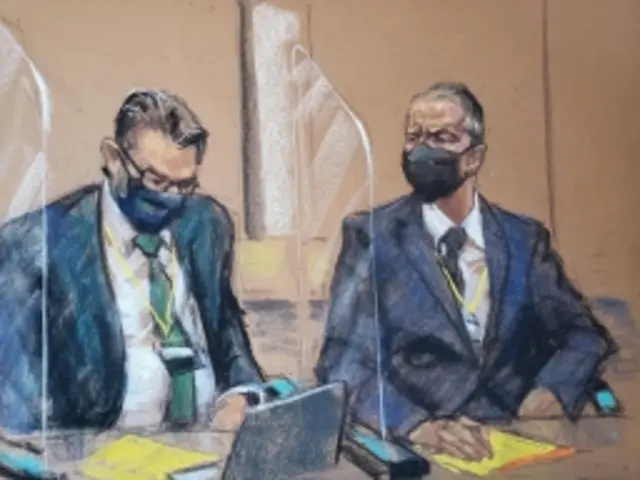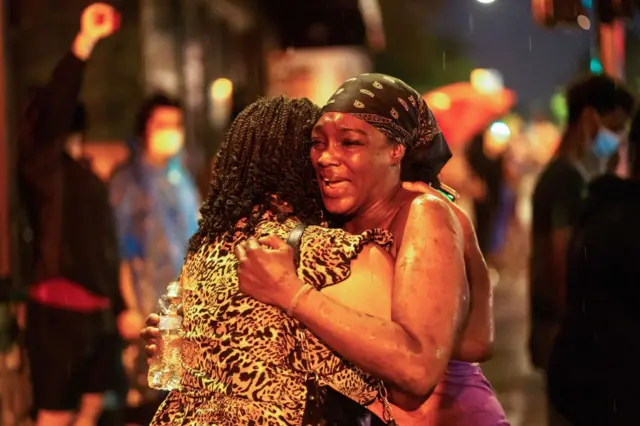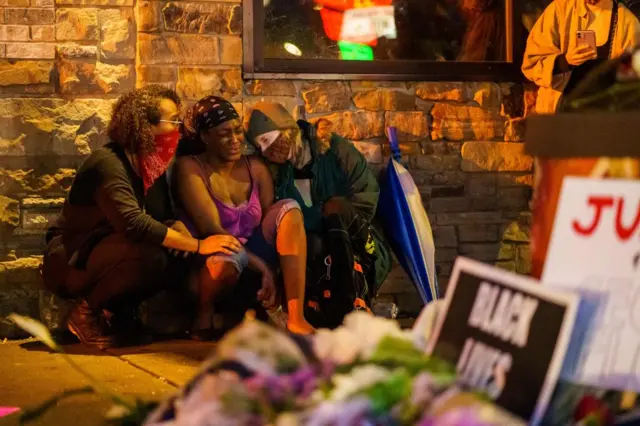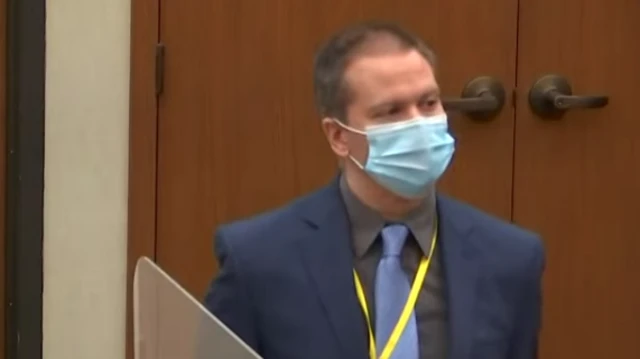'Was this a deadly use of force? It was not'published at 19:57 BST 13 April 2021
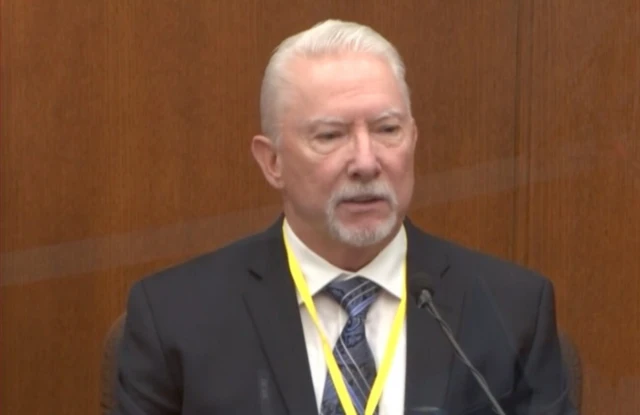 Image source, Court TV
Image source, Court TVCritics of the George Floyd arrest have said his alleged use of a counterfeit bill amounted to a misdemeanour and he should not have been arrested.
The witness, however, says Derek Chauvin and his fellow officers had "reasonable suspicion to detain" and "probable cause to arrest" Floyd.
Barry Brodd notes that Floyd's actions before the arrest and his resistance to arrest justified the officers holding him down.
"Was this a deadly use of force?" asks defence attorney Eric Nelson.
"No, it was not," says Brodd.
He adds that the manner of Floyd's detention was compliance by "stimulating with pain".
"Officers don't have to fight fair," says Brodd, explaining that they have to find and maintain control.

